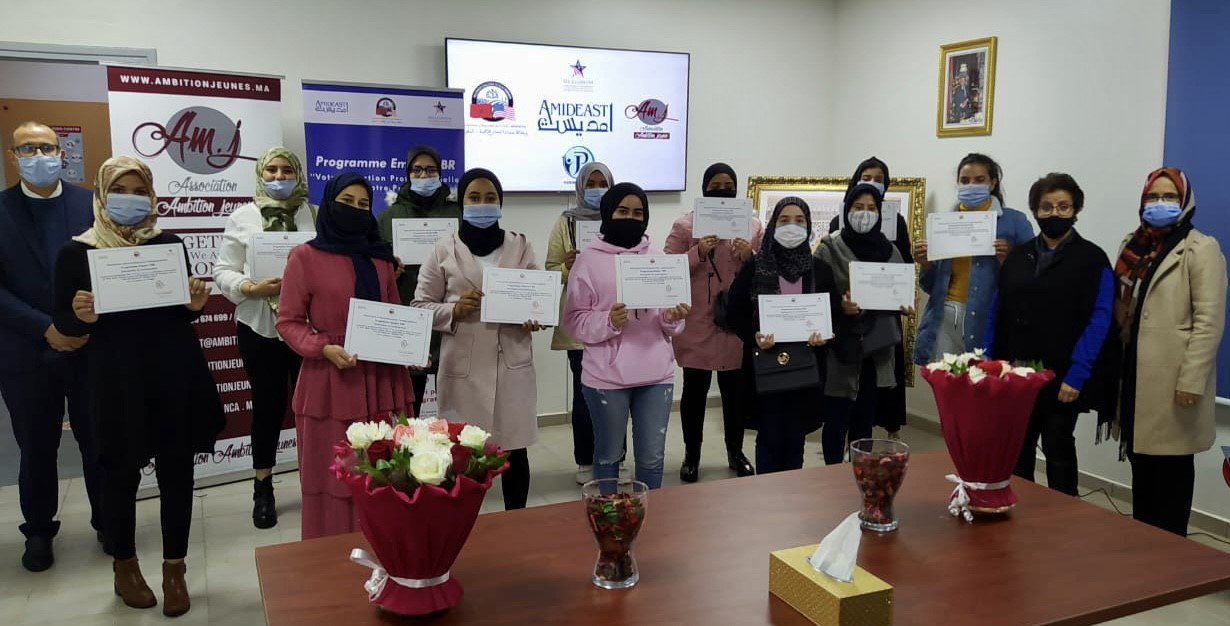
That changed after Abdelmoula joined “Emploi FBR,” an initiative that has improved the life prospects of 435 young Moroccans like him and promises to benefit many more. Underway since January 2020, it is a partnership between Amideast, the U.S. aid agency Millenium Challenge Corporation (MCC) and its Moroccan arm, MCA Morocco, and Morocco’s Ministry of Employment and Vocational Training and its National Agency for Promotion of Employment and Skills.
Emploi FBR was created to address Morocco’s stubborn unemployment situation, one that has hit its youth particularly hard. Despite the country’s recent achievements of robust economic growth, unemployment rates before the COVID-19 pandemic were already high. Morocco’s unemployment rate was estimated 9.2 percent in 2019 with the youth unemployment rate double that of the total population. For university degree holders like Abdelmoula, the metrics were even more dismal, with three out of four unemployed.
Emploi FBR aims to help a total of 600 job candidates improve their employment prospects through soft skills training and by matching them to jobs. More than half of the slots are allocated to women, reflecting the high priority Emploi FBR places on improving the prospects of women jobseekers and helping Morocco raise its labor participation rate for women, which is among the lowest in the world and has been decreasing in recent years. An important goal of Emploi FBR is assisting private sector companies and organizations in meeting their hiring needs.
The MCC data base shows that one out of three youths trained to date has found a job. However, that rate more likely exceeds 80 percent, says MCC Project Manager Mostafa Bentoumia, who explains that training and placement in the formal job sector is a requirement of MCC, but it takes time for candidates to be registered formally in the system and receive the local equivalent of social security.
The COVID-19 crisis, which began two months into the project, presented a challenge during the period of March to June 2020, when Morocco was in lockdown. But the slow revival of the economy that began last fall and continued into winter has allowed 30 individuals to receive training each week, mostly for employers that are hiring large numbers of youth in manufacturing and services industries.
“The point of the MCC program was to help me find a job,” observes Abdelmoula, adding “this training helped me present myself to others to make them believe in me.” The Casablanca youth was recently hired by the Ministry of Education to be a teacher-in-training of mathematics for middle school and high school students.
His confidence bolstered by the success of this initial step, he is setting his sights even higher: “I worked hard for this kind of opportunity. I now dream to teach at university one day.”
